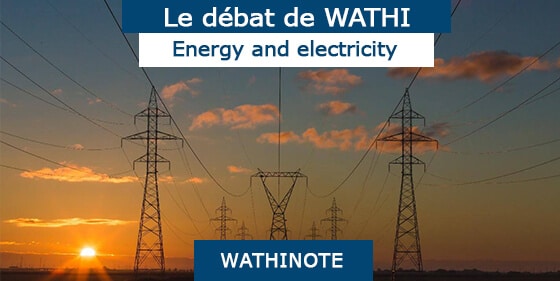

Author: Karin Reiss
Affiliated organization: UN Chronical
Type of publication: Press Article
Date of publication: December 2015
The ECOWAS region ranks among the lowest in terms of electricity access rates in the world, with only about 42 per cent of the total population, and 8 per cent of rural residents having access to electricity. The region is confronted with the realities of energy vulnerability, fuel price volatility and system unreliability.
Energy poverty and its consequences for local economies and social development are projected to remain the predominant challenge for West Africa through to 2030
Electricity access varies widely, from Niger with an electrification rate of just 9 per cent (2011), to Cabo Verde which has achieved nearly universal access. However, national rates mask wide disparities between access in urban versus rural areas, which remain underserved by grid networks supplying major cities.
West Africa’s economies already are and will inevitably be even more confronted with the effects of climate change in the coming decades. Hence the increasingly urgent need to both mitigate emissions and promote regionally appropriate adaptation measures, while striving to achieve sustainable development objectives. Given the region’s vulnerability to climate change, the urgent need for reliable and affordable energy poses a dilemma for policymakers.
Unlocking the potential for Renewable Energy and Energy Efficiency
The ECOWAS region is blessed with great potential for renewable energy, which if harnessed, can play an important role in addressing the energy shortage. In the coming years, the rising energy demand due to population growth (around 2.5 per cent per year), rapid urbanization and economic development will call for urgent action to exploit the region’s tremendous renewable energy resources.
In contrast with fossil fuels, renewable energy resources are far more equitably distributed, providing opportunities for all ECOWAS member States to benefit from them. An estimated 23,000 MW of hydroelectric potential is concentrated in 5 of the 15 member States, of which only about 16 per cent has been exploited. According to preliminary estimates, small hydropower potential in the region amounts to around 6,000 MW. There is good potential for all forms of bioenergy. There are considerable wind, tidal, ocean, thermal and wave energy resources available in some ECOWAS countries. The region also has vast solar energy potential with very high radiation averages of 5 to 6 kWh/m2 throughout the year.
In 2012, the ECOWAS member States adopted the ECOWAS Renewable Energy Policy (EREP), which aims to increase the share of renewable energy (including large hydro) in the overall electricity mix to 35 per cent by 2020 and 48 per cent by 2030. The share of new renewable energy such as wind, solar, small scale hydro and bioelectricity (excluding large hydro) will increase to around 10 per cent by 2020 and 19 per cent by 2030. These targets translate to an additional 2.425 MW of renewable electricity capacity by 2020 and 7.606 MW by 2030.
Think globally act regionally: the establishment of the ECOWAS Centre for Renewable Energy and Energy Efficiency
ECOWAS has taken a pioneering role in the development of a regional sustainable energy framework in sub-Saharan Africa and much has been achieved to provide guidance and support to the member States for the adoption and creation of renewable energy and energy efficiency markets.
One concrete step has been the establishment of the ECOWAS Centre for Renewable Energy and Energy Efficiency (ECREEE), the first regional centre with a specific focus on renewable energy and energy efficiency technologies in sub-Saharan Africa
The Centre promotes and supports the development and scaling of renewable energy and energy efficiency markets in the ECOWAS region.
In order to fast-track poverty eradication, the ECOWAS region also puts emphasis on growing its industries in an inclusive and sustainable manner. Green industry and green growth shows that sustainable energy powers human progress, from job generation to industrial competitiveness, from strengthening security to empowering women. There is great potential for the use of renewable energy in industrial applications, in particular in small- and medium-sized enterprises.
Putting a gender-eye on the energy agenda
Women are not only important end users of energy, they are also disproportionately burdened with the sourcing of energy. There is a need to promote access to clean and affordable energy by directly addressing the differential energy needs and concerns of women and men, while advancing gender equality and sustainable development.
The challenge of gender inequality in the energy sector is strongly linked to the lack of gender consideration in the planning process. In order to overcome these barriers, ECREEE has launched ECOW-GEN. To ensure that women, as much as men, contribute to and benefit from clean energy development, ECOW-GEN implements activities directed at strengthening women economically by improving energy access for income-generating activities and, more importantly, empowering women as active actors in the sustainable energy sector. In June 2015, ECOWAS validated the first regional gender and energy policy in the world.
Les Wathinotes sont soit des résumés de publications sélectionnées par WATHI, conformes aux résumés originaux, soit des versions modifiées des résumés originaux, soit des extraits choisis par WATHI compte tenu de leur pertinence par rapport au thème du Débat. Lorsque les publications et leurs résumés ne sont disponibles qu’en français ou en anglais, WATHI se charge de la traduction des extraits choisis dans l’autre langue. Toutes les Wathinotes renvoient aux publications originales et intégrales qui ne sont pas hébergées par le site de WATHI, et sont destinées à promouvoir la lecture de ces documents, fruit du travail de recherche d’universitaires et d’experts.
The Wathinotes are either original abstracts of publications selected by WATHI, modified original summaries or publication quotes selected for their relevance for the theme of the Debate. When publications and abstracts are only available either in French or in English, the translation is done by WATHI. All the Wathinotes link to the original and integral publications that are not hosted on the WATHI website. WATHI participates to the promotion of these documents that have been written by university professors and experts.
